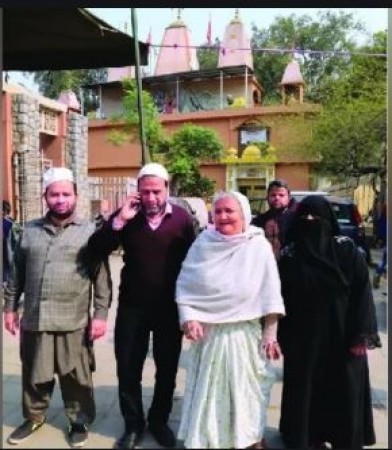
New Delhi: To ease the path of power in the assembly elections, political parties are adopting all the tactics. Amidst the protest, Shiva temple near Hazrat Nizamuddin Dargah has become an example. In front of this temple, women have been sitting on protest since 26 January against the Citizenship Amendment Act (CAA). The temple priests are providing hot water to the women and the rest of the people for washing their hands and feet to offer Namaz at the protest site. Preist's mother Lakshmi Devi embraces Muslim women's protesting. Women also do not get tired of thanking the priest.
CM Yogi's cabinet meeting to be held today, registration fees of properties may increase
At the same time, it is also said that Laxmi Devi, the mother of the priest Rajaram told that in 1982, this Shiva temple was established in Hazrat Nizamuddin. It is just a few steps away from the dargah. Apart from Hindus, Muslims also come to this temple. Lakshmi Devi says that she has always been loved by the people. The doors of the temple are open for them 24 hours. She says that all the people of the locality are her children. What happens with discrimination? Everything has to remain here after death. Volunteer Sheikh Jilani of the protest site says that Kishan, son of Rajaram, the priest of the temple and he is a childhood friend. Both of them studied in the school together. Both are involved in each other's happiness and sorrow. Even sometimes the two eat at each other's house.
Germany's politics once again heated up due to burqa
Ramphal says that after 1982, there has been such a massive rebellion in the country, but he never even realized that there was a temple in the Muslim colony. If anything happens, the people of the locality themselves come to the temple and talk about supporting them. Rahees Ahmed, an elder of the locality, says "We are all Indians. Everyone was born in this soil and everyone will be buried in this soil. If we discriminate, what will we show to God?"
Shaheen Bagh Firing Case: Father revealed the dark secret of Kapil Gurjar